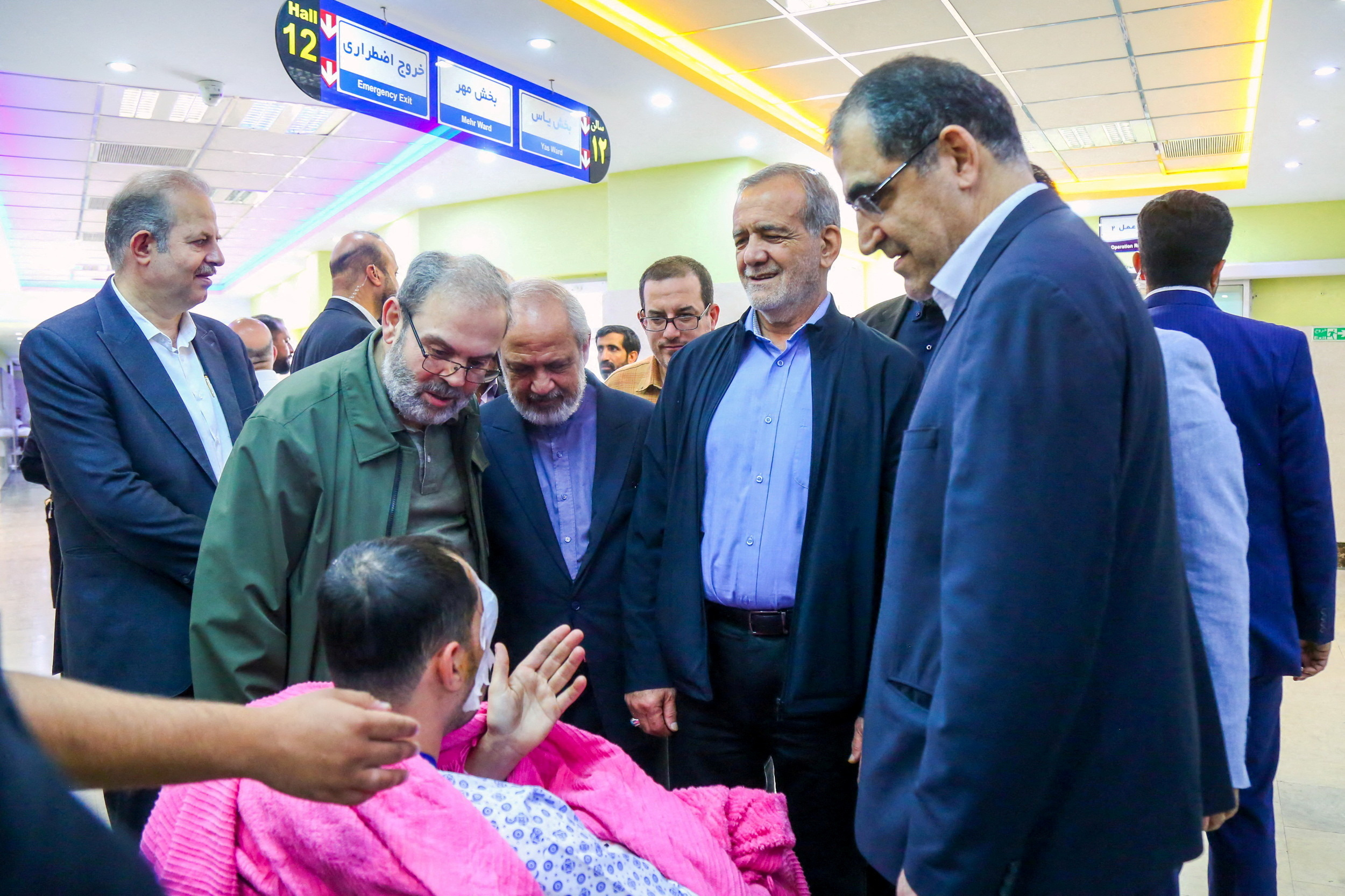
After the attack on Hezbollah, Iran’s Guards have banned all communication devices
Two top Iranian security sources told Reuters that the elite Revolutionary Guards Corps (IRGC) has told all of its members to stop using any kind of communication devices after last week’s deadly attacks on thousands of pagers and walkie-talkies used by Hezbollah allies in Lebanon.
One of the security sources said that the IRGC is currently running a large-scale operation to check all devices, not just communication gear. He said that many of these gadgets were either made by hand or came from China and Russia.
The official, who did not want to be named because the matter was private, said that Iran was worried about infiltration by Israeli agents, including Iranians working for Israel. “A thorough investigation of personnel has already begun, targeting mid- and high-ranking members of the IRGC,” the official said.
“This includes scrutiny of their bank accounts both in Iran and abroad, as well as their travel history and that of their families,” the official said.
The foreign, defense, and interior ministries of Iran could not be reached right away to comment on what the security sources told Reuters.
On Tuesday, the pagers went off across Hezbollah’s bases as part of a coordinated attack. Hundreds of Hezbollah radios went off on Wednesday. Over 3,000 people were hurt and 39 people died in the bombings.
Both Hezbollah and Lebanon say that Israel was behind the strikes. Israel has neither admitted nor denied being involved.
The security official refused to say more about how the 190,000 people in the IRGC force are talking to each other. “For now, we are using end-to-end encryption in messaging systems,” said the man.
According to the same official, many people in Iran’s ruling elite are worried. IRGC officials have asked Hezbollah to do technical checks, and a number of cases of exploded devices have been sent to Tehran so that Iranian experts can look at them.
NUCLEAR AND MISSILE FACILITIES
Another official from Iran said that the Islamic Republic’s main worry was keeping the country’s nuclear and missile bases safe, especially those that are underground.
“But security at those sites has stepped up a lot since last year,” he said, referring to the extra security that was put in place after what Iranian officials said was an attempt by Israel to hurt Iran’s missile program in 2023. Israel hasn’t said anything about this.
He also said, “There has never, ever been such tight security and extreme measures in place as there are now.” This suggests that security has been greatly enhanced compared to before the pager explosions in Lebanon.
Strong in Iran’s politics, military, and economy, the IRGC is connected to the country’s Supreme Leader Ayatollah Ali Khamenei. It was created to protect the clerical ruling system after the Islamic Revolution in 1979. It has its own land force, navy, and air force, and it is in charge of Iran’s strategic weapons.
Through its foreign operations arm, the Al Quds Force, it has an impact on the Middle East by giving money, weapons, technology, and training to groups that work with it, such as Hezbollah in Lebanon, Hamas in Gaza, the Houthis in Yemen, and militias in Iraq.
A first Iranian source said that the military of Iran uses a variety of protected communication devices, such as walkie-talkies, to keep their conversations safe. He said that Iranian military communications gear was often made in Iran or came from a mix of local and foreign suppliers, though models and names could be different.
According to him, Iran’s military hasn’t used pagers in more than twenty years.
Tehran has made its own military-grade radio broadcasts through its defense industry so that it doesn’t have to rely on imports from other countries, especially since the West has put sanctions on Tehran because of its nuclear program, he said.
Iran has, however, bought communication gadgets from China, Russia, and even Japan in the past.
For decades, Iran and Israel have been in a kind of “shadow war,” with both sides accusing the other of plotting to destroy and kill them.
The fighting has gotten worse in the past year, including between Israel and Hezbollah. This is happening at the same time as the Gaza war, which started when the Palestinian group Hamas attacked towns in southern Israel on October 7.
Israel is blamed by Iran and Hezbollah for killing Hamas leader Ismail Haniyeh in Tehran and Fuad Shukr, Hezbollah’s top military boss, in Beirut a few hours earlier in July. Israel said that it killed Shukr, but it hasn’t said for sure that it killed Haniyeh.
Israel’s right to exist is not recognized by Iran. In the past, Khamenei has said that Israel is a “cancerous tumor” that “will definitely be uprooted and destroyed.”
Israel sees Iran as a threat to its very existence. Also, it says that Iran is trying to make nuclear weapons behind closed doors, but Iran claims that it is trying to make a nuclear bomb.
All Categories
Recent Posts
Tags
+13162306000
zoneyetu@yahoo.com



